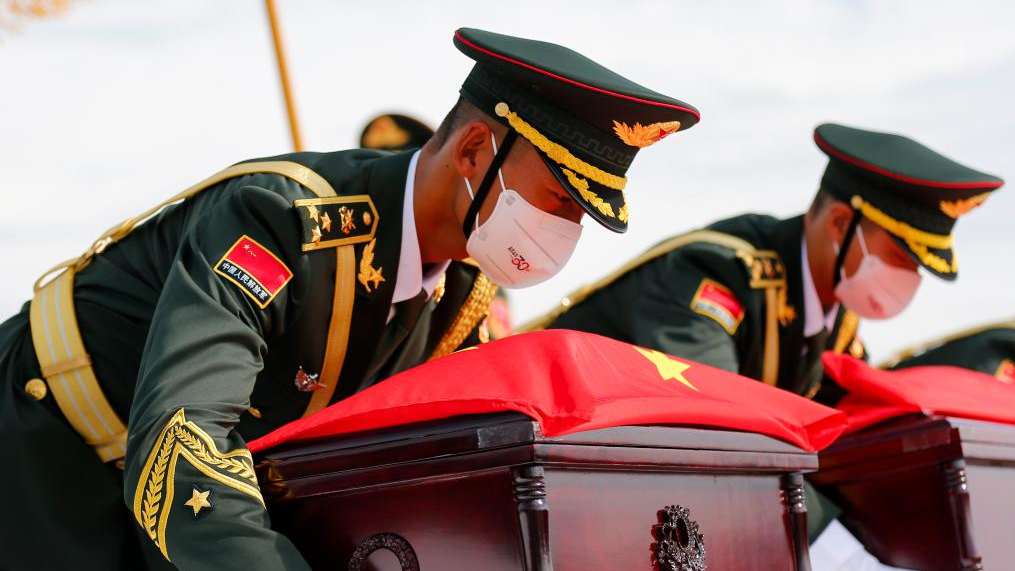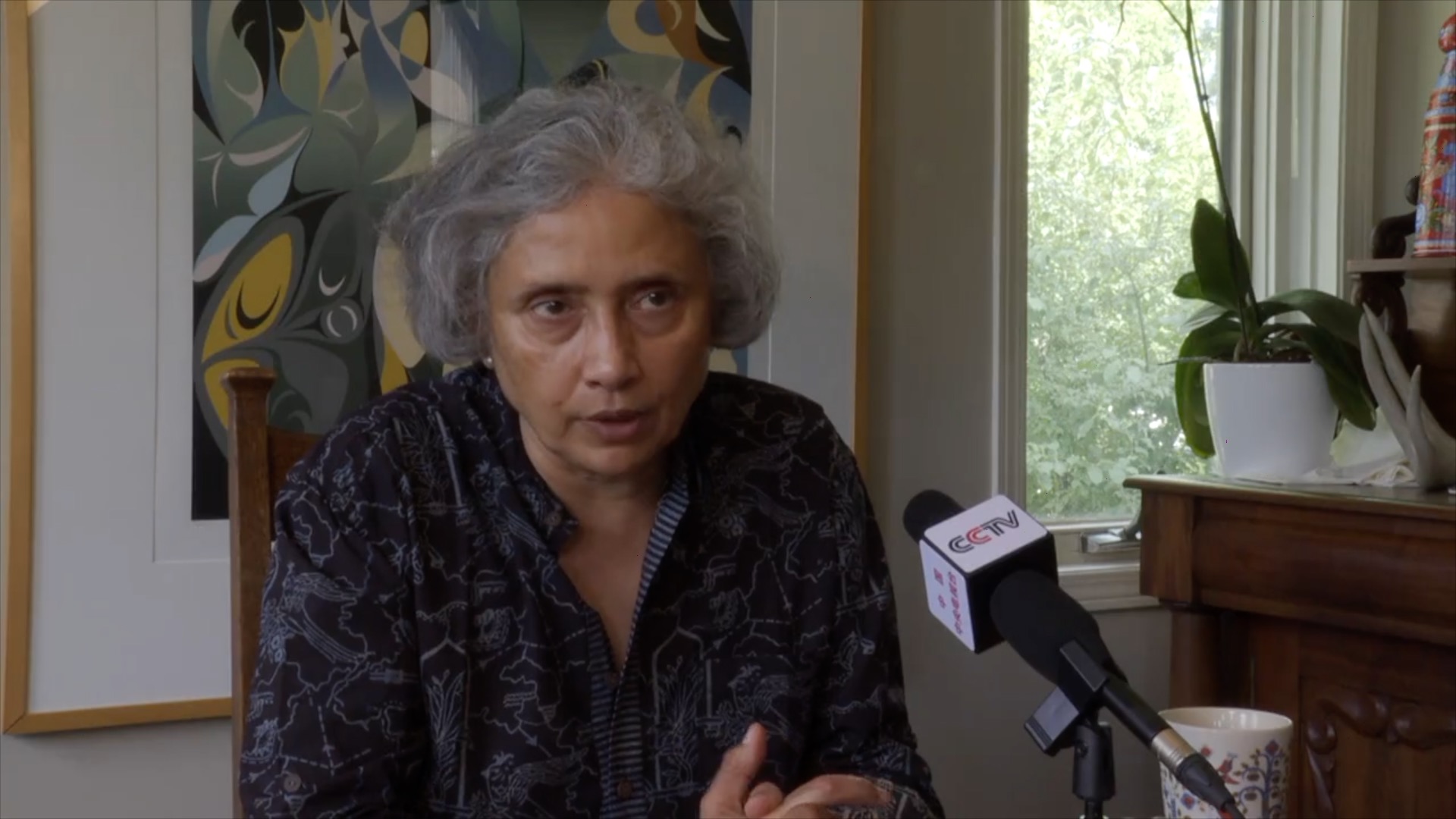
Chinese soldiers prepare to carry to a plane coffins containing remains of Chinese People's Volunteers martyrs killed in the 1950-53 Korean War during a repatriation ceremony at Incheon International Airport in Incheon, ROK, September 16, 2022. /Xinhua
Chinese soldiers prepare to carry to a plane coffins containing remains of Chinese People's Volunteers martyrs killed in the 1950-53 Korean War during a repatriation ceremony at Incheon International Airport in Incheon, ROK, September 16, 2022. /Xinhua
The 70th anniversary of the victory of the War to Resist U.S. Aggression and Aid Korea (1950-53) once again highlights the importance of peace and development as the world now suffers from regional conflicts and economic slowdown.
One year after the founding of the People's Republic of China, the Chinese People's Volunteers army was formed upon receiving the Democratic People's Republic of Korea's request for assistance and crossed the Yalu River to fight together with the DPRK army until the armistice was signed in 1953.
Over 197,000 Chinese soldiers had died in the war and many of them were scatteredly buried to the south of the Military Demarcation Line on the peninsula. In recent years, their remains were excavated, identified and reburied in ROK.
In 2013, China and ROK agreed to establish a long-term cooperative mechanism to return the Chinese soldiers' remains every year.
A total of 913 Chinese soldiers' remains have been returned to China with the remains of 88 Chinese soldiers being handed over to China at the ninth repatriation ceremony held on September 16, 2022.
"May you rest in peace. The motherland has grown strong and she has brought you back from the foreign land. Rest in peace," said Li Weibo, a 95-year-old veteran of the war, when he saw the remains of his counterparts in the war.
Read more:
Graphics: 70 years on, carrying forward the spirit of the War to Resist U.S. Aggression and Aid Korea
02:16

It's really a tough war for then China, which was founded in October 1949, to fight against the United States, which is then the world number 1.
Even so, China took on and resisted the American imperialism, said Radhika Desai, a professor of political studies at the University of Manitoba in Canada. "That was something to be proud of."
While stressing the history of the Korean War indicates that the U.S. cannot advance whatever it likes, Desai added that development is the most stable means to resist imperialism.
As for Gyula Thürmer, head of the Hungarian Workers' Party, the war made very clear for all the people that the Americans are not our friends, not our allies, the Americans are starting new wars again and again.
Noting the world nowadays still faces challenges of imperialism and power politics, Thürmer said all of us should cooperate, to change the world, to stop aggressive forces and to learn from history.
Li Hongzhong, a member of the Political Bureau of the Communist Party of China Central Committee and vice-chairman of the Standing Committee of the National People's Congress, China's top legislature, is leading a delegation to attend commemorative activities in Pyongyang.
Chinese Foreign Ministry spokesperson Mao Ning said on Tuesday: "We believe the visit will be conducive to promoting the sound and stable development of bilateral relations, contributing to regional peace and stability, and creating conditions for a political settlement of the Korean Peninsula issue."
(Cover: The Memorial Hall of the War to Resist U.S. Aggression and Aid Korea in Dandong, Northeast China's Liaoning Province, May 16, 2023. /CFP)